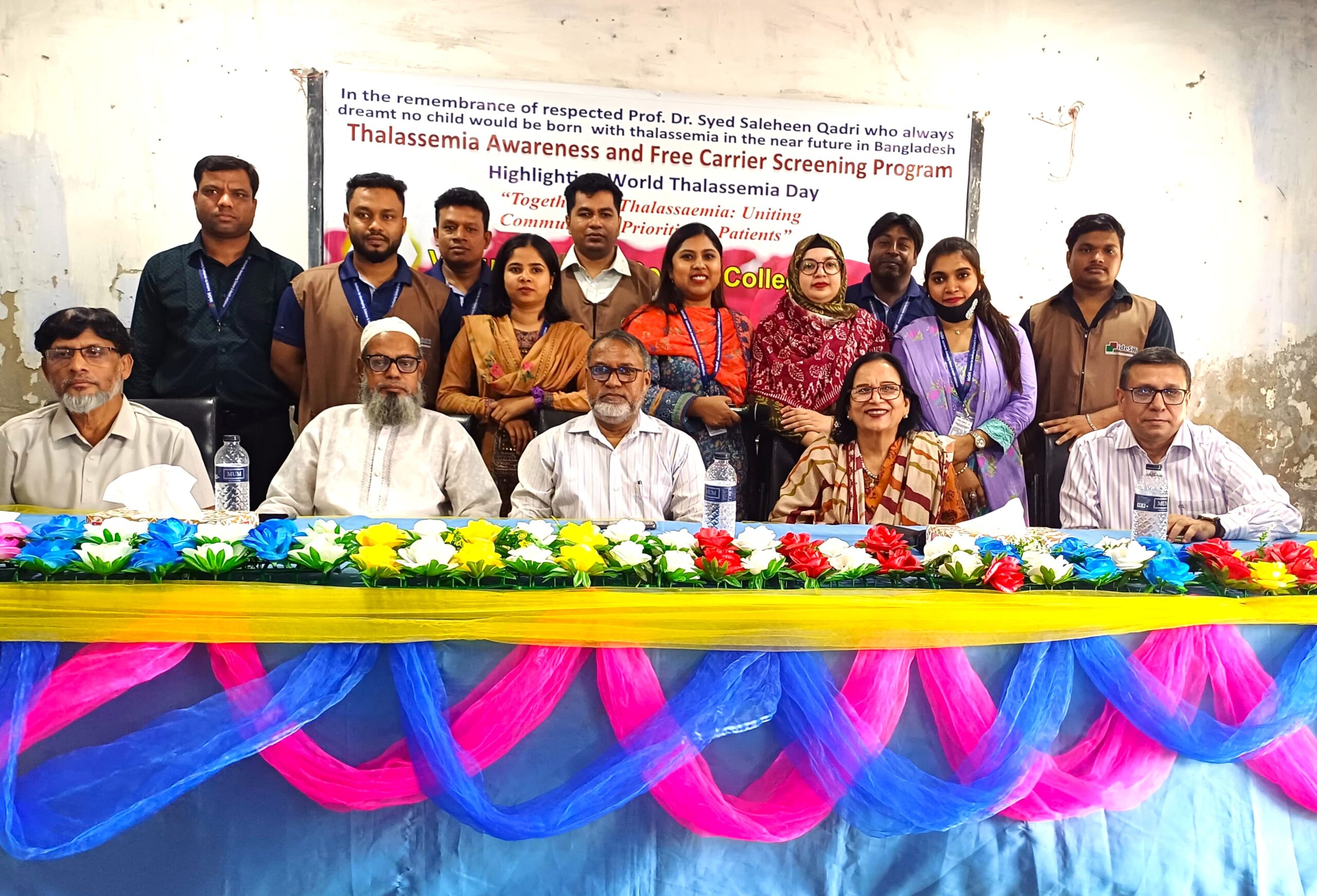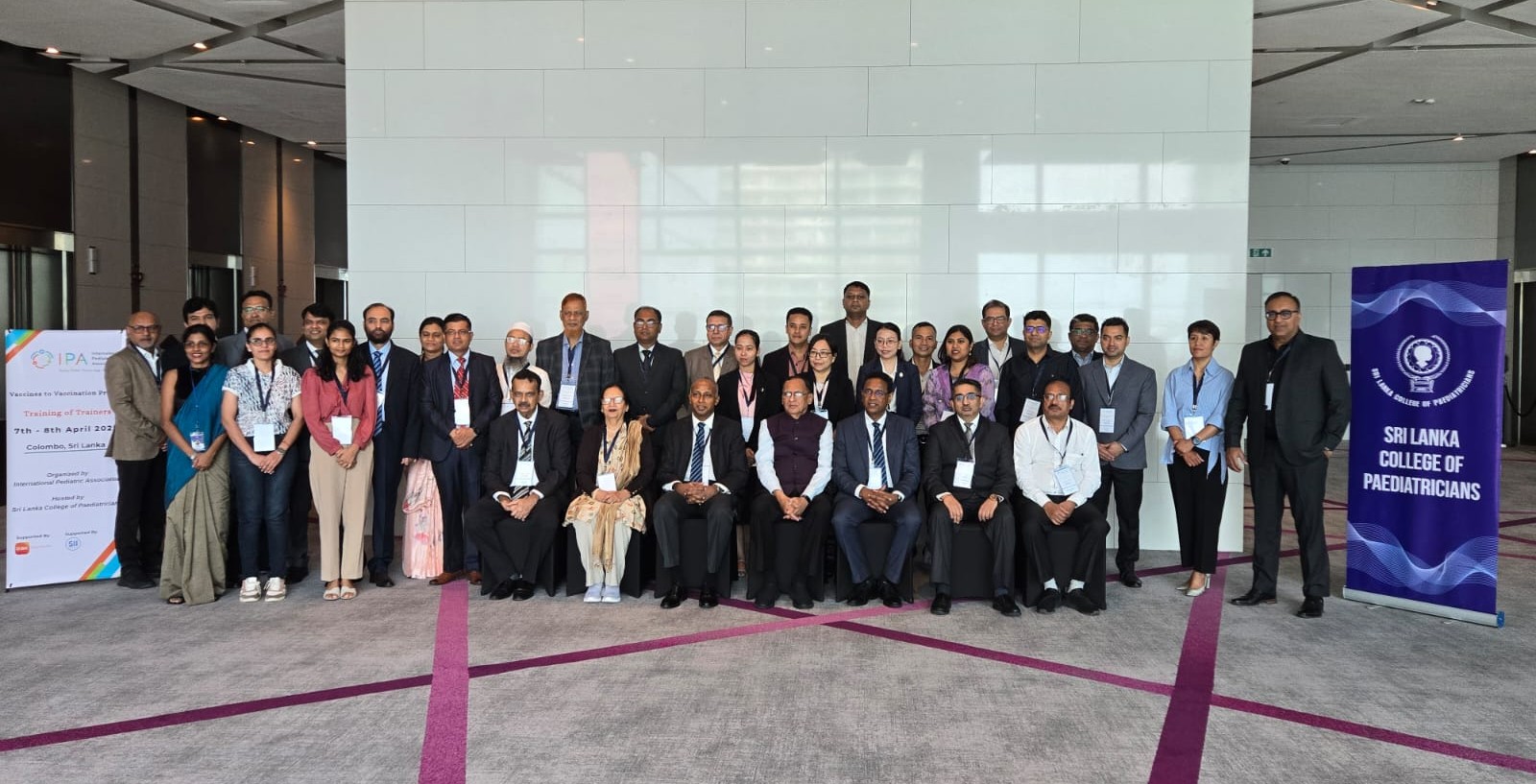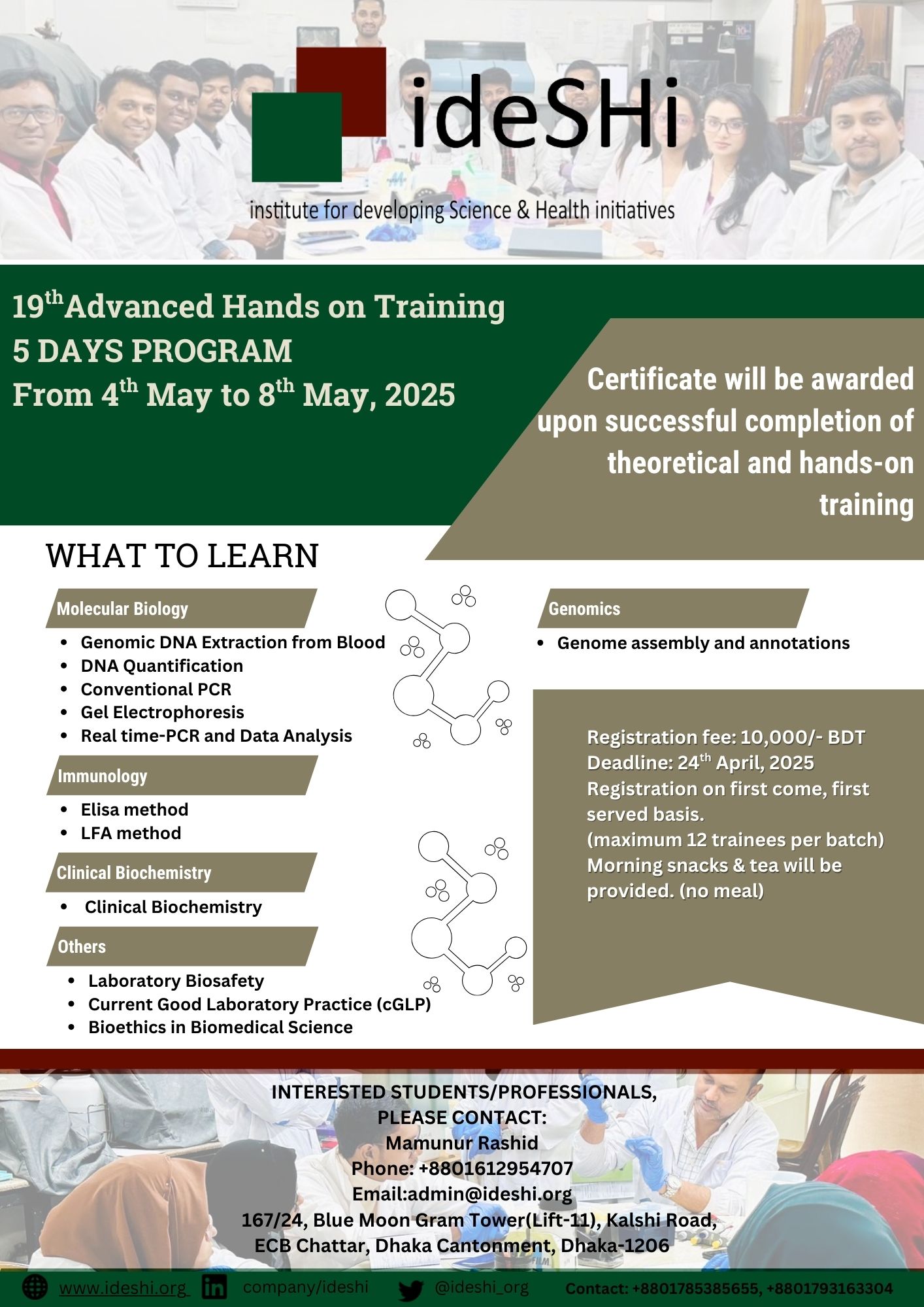Program Lead
Abu Bakar Siddik
Our Approach
Our COVID-19 research further focused on long-term effects on pulmonary function (PF) as well as serological aspects of individuals recovering from COVID-19 with varying disease severity ranging from mild to severe symptoms.
We intend to evaluate their antibody responses, particularly IgG, before and after vaccination. Simultaneously, we examine their pulmonary function to identify any lingering abnormalities or concerns after they have recovered by determining PF testing parameters such as FVC, FEV1, FEV1/FVC, PEF, MEF, and so on.
This combined strategy helps us better tailor vaccination and post-COVID care plans, which benefits both individual health and the overall pandemic response.
Partners
Ingenious Health Care Limited and ideSHi
Research Goals
Through the study, we aim to identify the duration and strength of IgG antibody responses following natural infection as well as vaccination and pulmonary functional activity following recovery who had COVID-19 history with varying disease severity.
Context
In the midst of the relentless global challenge posed by the COVID-19 pandemic, serological research and the emergence of long COVID effects have come to the fore. Beyond acute illness, long-term COVID is a growing concern due to its persistent symptoms, especially pulmonary abnormalities. Understanding the pulmonary health of post-COVID individuals, particularly those with a history of disease severity and the serology study after vaccination, informs the timing and necessity of booster shots contributing to long-term immunity.
Impact
It will provide a better understanding of COVID-19’s long-term health consequences, particularly in relation to pulmonary function. With this knowledge, medical professionals can better tailor post-COVID care and rehabilitation strategies to meet the unique needs of patients who experienced varying degrees of disease severity. Public health policies and vaccination strategies, such as booster shots and vaccination schedules, will also be informed by the study’s findings.






